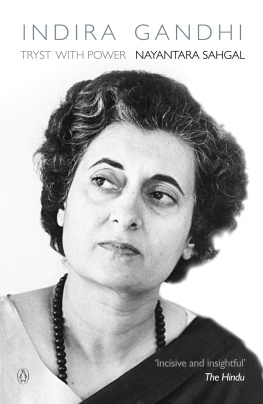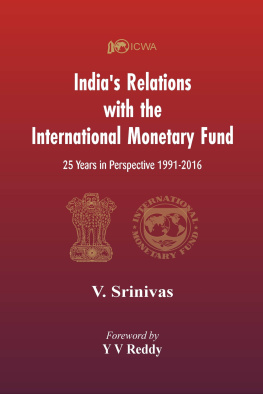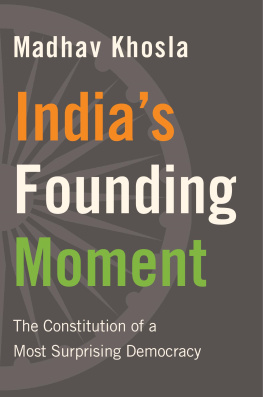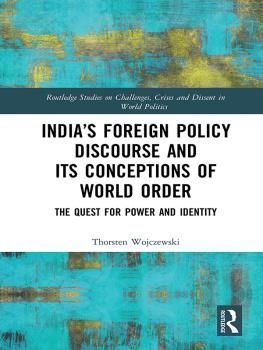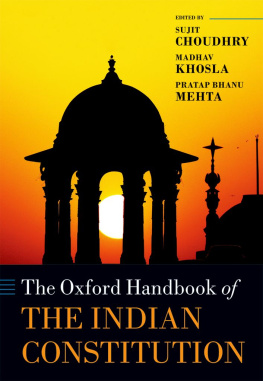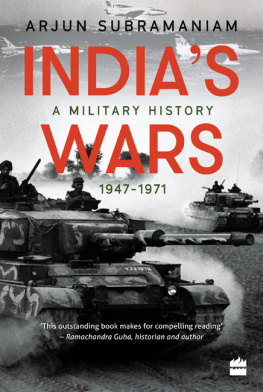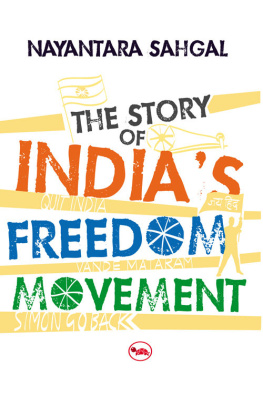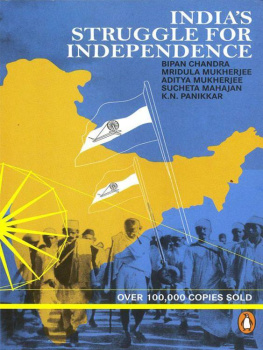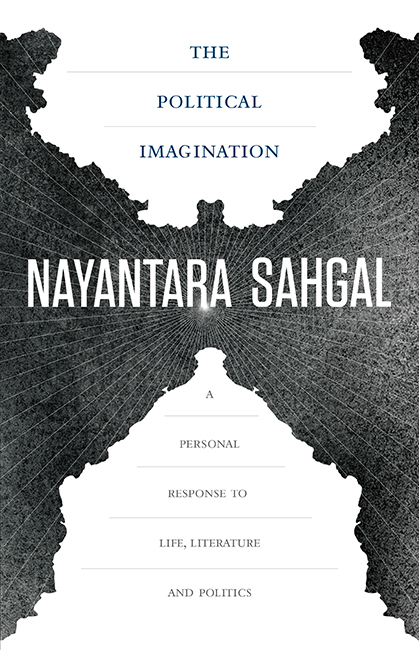
THE POLITICAL IMAGINATION
A Personal Response to Life, Literature and Politics
Nayantara Sahgal

HarperCollins Publishers India
To my father
Ranjit Sitaram Pandit
Sanskrit scholar, sportsman and freedom fighter who died of his last imprisonment under British rule in 1944
CONTENTS


I am defining politics in a wider context as the atmosphere of the times we live in. I am saying that writing comes out of that particular atmosphere. Agatha Christies wonderful detective fiction is a clear example. Her novels are not, by any stretch of the imagination, political, but they are firmly situated in the atmosphere of their time, which was imperialist and racist, and reflect its beliefs and point of view. Until empires packed up, the world was seen exclusively through a narrow Western canon. That began to change with countries coming into their own, and it further changed as migrant writing made its own impact.
Some would have us believe that migrant writing is apolitical because it emerges from what is now known as a global borderless world. This, of course, is not true. Art and literature have always crossed borders, though artists and writers did not. Being global does not prevent migrant writing from faithfully reflecting its new situation, which is the result of its reactions to its adopted soil and surroundings. A writers choice of subject, the way it is presented, and from what point of view, make writing a political act.
Nor is it true that the world is borderless. The nation state with its history, geography, collective memory, and sense of identity is very much with us. Global has not erased the sense of national uniqueness. And contemporary literature across the world continues to be fashioned out of it.
If we take politics as such, it is just one more area of human experience for politics to draw on. The powerful novels and plays it has produced through the twentieth century when political developments impacted human lives on a vast scale have been the outcome of politically conscious imaginations. Writers have, through the cloistered act of writing, stepped into controversies, taken sides not as polemics or propaganda but through stories about the people who bear the brunt of the times they live in.
I hope I have, through my fiction and non-fiction, reflected the times I live in, and through this collection of my writing, I hope I have been able to reveal something of the politics of my own imagination.
NAYANTARA SAHGAL
Dehra Dun,
December 2013

I ve called my talk Narrating the Political so first of all I should explain what I mean by political. We live in the atmosphere and conditions of a particular time and place. The world is what we see from where we stand. Writing comes out of that context but in a hundred different ways. You and I may be part of the same era and environment, yet we may react to it very differently and write from radically different points of view. Our choice of subject, the way we describe it, and from what point of view, make writing a political act. Then, of course, there is politics as such. Earlier, the fallout of politics, including wars, did not break into private lives, so Jane Austens characters could inhabit a private world untouched by the Napoleonic wars. But because political happenings have so intimately and directly affected private lives in the twentieth century as in no other century, politics has become one more area of human experience for imagination to draw on. The plays and poems and novels it has produced have not been about politics, they have been the outcome of politically conscious imaginations. Writers have, through the cloistered act of writing, stepped into controversies, taken sides, made it clear that this is right and that is wrong, not as polemics or propaganda but by fashioning the truth as they see it into the stuff of peoples lives. Most often this has been a purely literary engagement with politics, but some, such as Wole Soyinka, have become political activists as well and suffered the consequences. Soyinka has spoken of having to survive twenty-one months of solitary confinement without human company and without books. In China, Liu Xiaobo is serving an eleven-year prison sentence and two other famous Chinese, Ai Weiwei (the design consultant for the birds nest stadium for the Beijing Olympics) and the famous writer, Liao Yiuri, are now under arrest. And the list is long of writers who have paid and are still paying a heavy price for the words they have chosen to put upon a page. Recently, Nadine Gordimer, a writer who has called herself unpolitical, has taken a political stand and, along with fellow writers, has drawn up a petition opposing the South African governments proposals to muzzle the media. Which makes me wonder if at some point in the life of even the most reclusive artist a time does not come when this rubicon has to be crossed. When artistic freedom is forbidden, the compulsions of life and literature become one and the same. Now, in this twenty-first century, the books I read by Afghan, Nigerian, Pakistani and Palestinian writers, apart from Indian, are as strongly political in theme or inspiration as Latin American or European fiction has been, or South African writing in the age of Apartheid. The literature of our time is saturated with the politics of our time as much as it is with any other aspect of life within us or around us.
In my own case, my political consciousness comes of the fact that I grew up in an occupied country. It was a paradoxical situation when the word occupied applied only to the European countries invaded and occupied by Hitler and not the imperial occupation of countries in Asia and Africa. Empires did not see themselves as occupying powers. In this paradoxical situation I also grew up in a family committed to overthrowing British rule. Rebellion against the Raj meant imprisonment, deportation or death and all this of course made politics an intensely personal and passionate involvement for my family and inseparable from our private life. There was, in fact, no such thing as a personal life that could be kept apart from the demands and duties of public life, with my elders having to spend years of their lives behind prison bars and my father dying of his last imprisonment under British rule. I dont remember a time when I was not politically aware of what was going on in my country or the world around us because we were an outward-looking, international-minded family. So that would be the short answer to why the political dominated my imagination and became the material I drew on for my own writing.
A completer answer would be that in any case one has a need to make ones voice heard and to make oneself understood on ones own terms, and much more so when one is living in a world invented by others, as I was. My hometown in north India was this kind of invention. All the roads in Allahabad were named after Englishmen. In the best part of town, the shops sold English goods and catered to an English clientele. The two cinemas showed English and American films. Of course in school, I was taught English history, English language, English literature and English religion. And there was an imposing statue of Queen Victoria in the main park which for some reason was called Alfred Park and not Albert Park. No wonder all this led to a fight for freedom and to Allahabad becoming one of the centres of it! It is no exaggeration to say that as a child I felt like an unwanted alien, an outsider in my own hometown. Salman Rushdie has written about being haunted by a sense of loss when he revisited his old home in Bombay many years after becoming an expatriate. He felt that by going away he had been robbed of his whole Indian past. Well, as a child of rebels against British rule, I felt I was being robbed of my present, and that I was waiting for a future that might never arrive. And the present I was living in had nothing to do with me. It was shaped by imperial interests and attitudes and it took the Europe-centred point of view for granted as the only reality. Nothing was known about India except through Western eyes and interpretation. In such conditions, writing becomes a form of resistance. A famous example of the period is the history that Jawaharlal Nehru wrote in prison called
Next page

